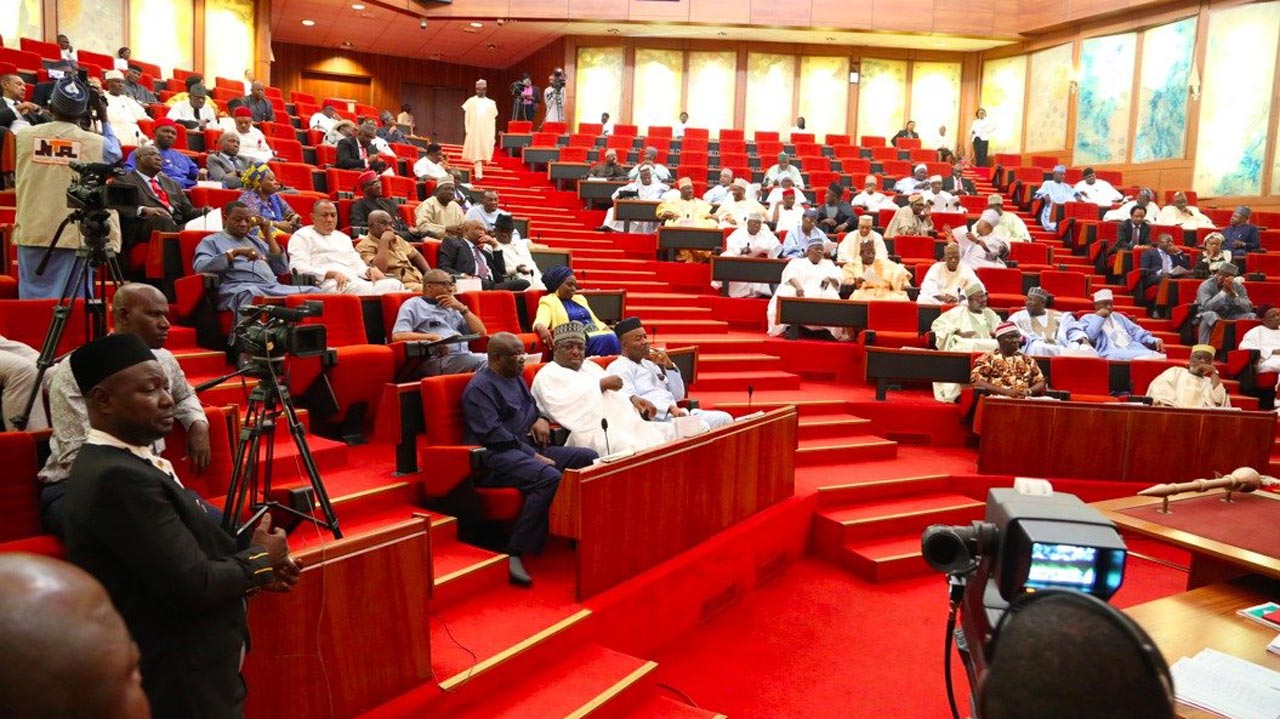Notice: Undefined index: banner_ad_width in /home/ayekooto/public_html/wp-content/plugins/quick-adsense-reloaded/includes/render-ad-functions.php on line 359
Notice: Undefined index: image_width in /home/ayekooto/public_html/wp-content/plugins/quick-adsense-reloaded/includes/render-ad-functions.php on line 359
Notice: Undefined index: banner_ad_height in /home/ayekooto/public_html/wp-content/plugins/quick-adsense-reloaded/includes/render-ad-functions.php on line 360
Notice: Undefined index: image_height in /home/ayekooto/public_html/wp-content/plugins/quick-adsense-reloaded/includes/render-ad-functions.php on line 360
The Senate on Tuesday defied a Federal High Court in Abuja’s decision prohibiting it from changing the Electoral Act 2022, which President Muhammadu Buhari recently signed, claiming that the judiciary cannot prevent the National Assembly from carrying out its duty.
The judiciary cannot prevent the National Assembly from carrying out its constitutionally mandated tasks, according to Senate President Ahmad Lawan, who stated this on the floor of the session.
“The courts cannot prevent the National Assembly from carrying its responsibilities,” Lawan stated.
In a judgement delivered by Justice Inyang Ekwo, the court specifically forbade all defendants in the FHC/ABJ/CS/247/2022 case from eliminating or obstructing section 84 (12) of the Electoral Act from being implemented.
In a judgement signed by Justice Inyang Ekwo, the court specifically forbade all defendants in the FHC/ABJ/CS/247/2022 case from repealing or stopping section 84 (12) of the Electoral Act from being implemented for the 2023 general elections.
The Attorney General of the Federation and Minister of Justice, as well as the Senate President, Speaker of the House of Representatives, Clerk to the National Assembly, Senate Leader, House of Representatives Leader, and the Independent National Electoral Commission, INEC, are named as defendants in the suit.
Other positions include Deputy Senate President, Deputy Speaker of the House of Representatives, Deputy Senate Leader, and Deputy House, Leader.
In a judgement signed by Justice Inyang Ekwo, the court expressly prohibited the defendants in the FHC/ABJ/CS/247/2022 case from repealing or obstructing the implementation of section 84 (12) of the Electoral Act.
President Muhammadu Buhari asked the National Assembly to strike down section 84 (12) of the Electoral Act, which he claimed would disenfranchise serving political appointees, before signing the Electoral Act Amendment Bill 2022 into law.
Political officeholders were required to resign from their positions before running for any elective office, according to this provision.
“No political appointee at any level shall be a voting delegate or be voted for at any political party’s convention or congress for the purpose of nominating candidates for any election,” the court ruling states.
The PDP challenged the constitutionality or otherwise of the National Assembly fiddling with the Electoral Act after it had been signed into law by the President in a substantive complaint filed by a team of attorneys led by Chief Ogwu Onoja, SAN.
In a few words…



Comment here